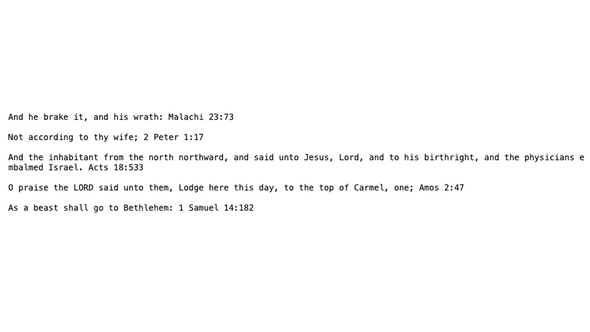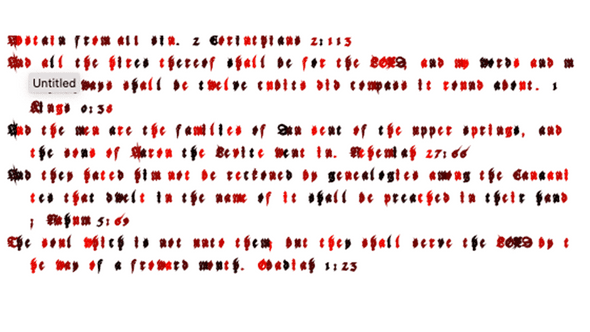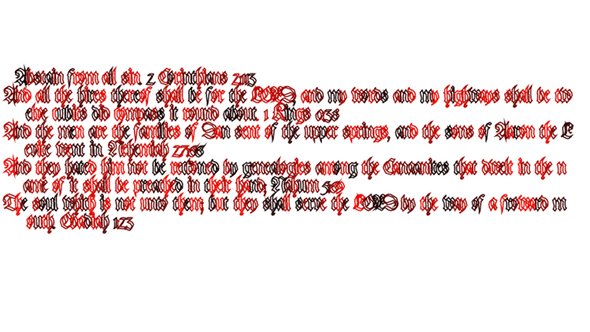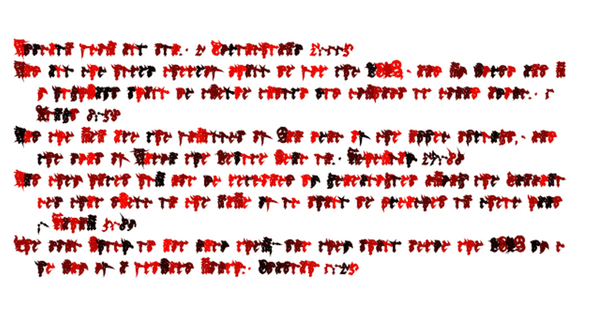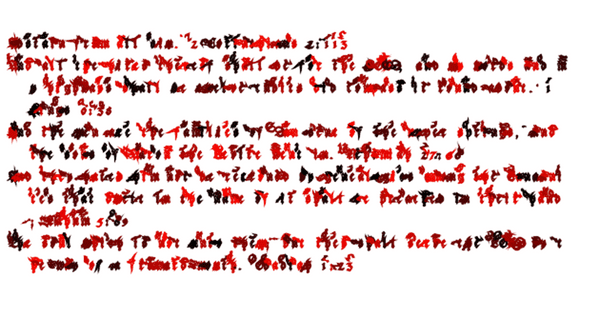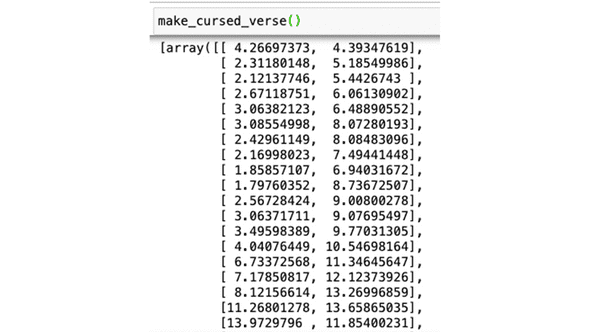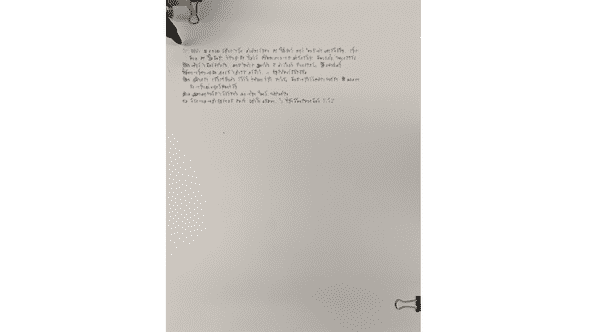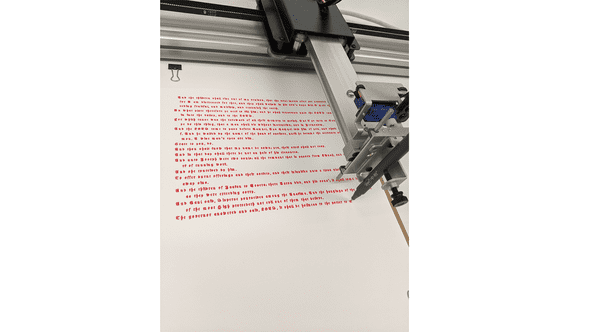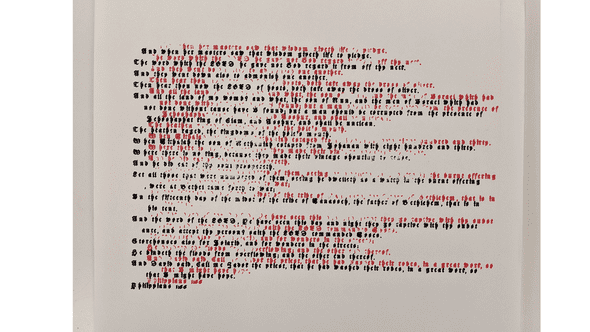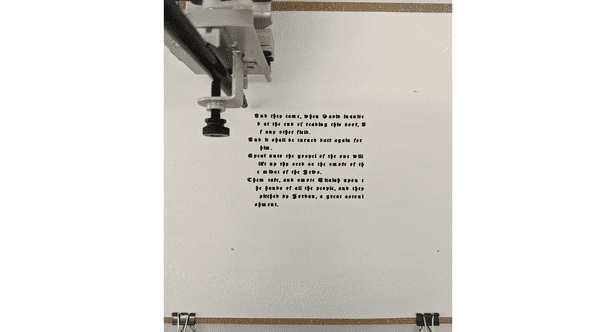speculative ritual
April 29, 2021
Markovify
I decided to focus on the technical portion of my proposed robot and dynamically create asemic bible verses to be physically written later. I decided to end up breaking down my project for each class. When designing how the Bible verse data was collected, I initially thought to grab 10 or so verses by hand and putting them in a json file:
[
{
"book": "Luke",
"chapter": "50,",
"verse": "3",
"text1": "this is ",
"text2": "sample verse"
}
]But then I realized that if I were to parse this json and randomly select each individual component I would basically be making a worse version of a Markov chain. So I checked if there is a python library to do so!
https://github.com/jsvine/markovify
Following the readme, I tried installing:
pip install markovifyHOWEVER this resulted in a terrible error:
ERROR:root:code for hash md5 was not found.Technical Issues
I actually ran into some issues with setting my main termianl to use zsh instead of bash. My jupyter notebook was unable to set the kernal, which took a few hours of debugging. There were two issues here:
1) my local python version had been reset to 2.7
2) my jupyter notebook python virtual environment was having...problemsI required two solutions then. The first was simply upgrading my local python version by ensuring Python 3.9 was installed (it was), and changing the default for the zsh profile to use anaconda settings
ln -s -f /usr/local/bin/python3.9 /usr/local/bin/python
conda init zshThis ensured that my anaconda settings were reflected in my zsh.
The second issue took more than an hour to figure out, but on perusing github forums, I found this solution by upgrading my notebook. It took awhile, but ended up being fine.
Parsing A Bible Corpus
After awhile of copying and pasting was an ineffient use of my time, and finally getting the Markov library to work, I needed to find a source for the actual verses I used. There has been a really big collaborative effort to put the bible online in every language available. But, it is all in xml.
https://github.com/christos-c/bible-corpus
But! They already account for that and even in the readme, they have instructions to do so.
import xml.etree.ElementTree as ET
lang = 'English'
root = ET.fromstring(open(lang + '.xml').read())
with open(lang + '.txt', 'w', encoding='utf-8') as out:
for n in root.iter('seg'):
out.write(n.text.strip() + '\n')I pulled this into the corpus.txt. From there I worked on the actual verse names. I kept with my original json architecture and created my verses.json
This all culminated in randomly generating verses that could be printed. The Markov chain generates the text, and I manually create the seperate verse name by random generation.
First Attempt at Digital Display
My first attempt comprised of layering all of the verses together and the longest one would demonstrate the particular name. I liked this version because it really alluded to biblical text, because otherwise there would be no correlation.
Second Attempts using Polyline
The following attempts were using Polyline to figure out how to get the specific coordinates with each individual glyph.
Cursed Attempts
These were messing with the rotation and scale of the Polyline object.
final digital output
This is the final output
This will be the coordinates used to plot the text using the translations and making the entry above a physical output.
using the axidraw
Process
Physical Output
Playtests
resources
a blog by sam heckle class of itp 2022. doing shit. twitter.
